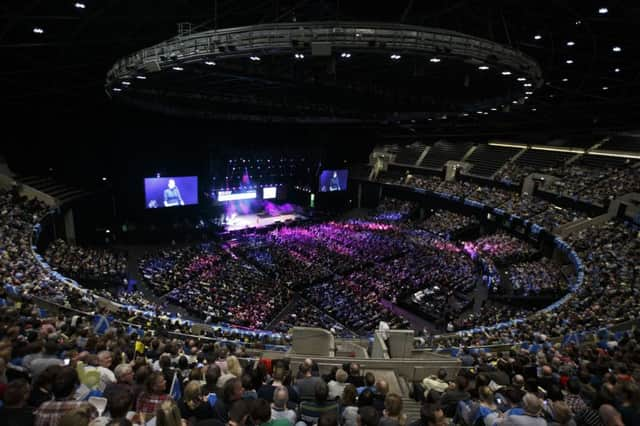Tom Peterkin: Indyref 2 talk shows lack of pro-UK movement


There was a feeling of well-worn and cantankerous arguments about currency union, EU entry and the rapidly descending price of North Sea oil being dusted down for another bitterly divisive set-to.
Of course, there are those like Jim Sillars who warmly welcomed Sturgeon’s promise to include details of the timing and circumstances of a second referendum in the SNP’s manifesto.
Advertisement
Hide AdAdvertisement
Hide AdIn the Sillars camp are the thousands of people who cheered Sturgeon to the rafters when she appeared at her “Democracy Rocks” gig at Glasgow’s Hydro in the aftermath of last year’s No vote.
Democracy may well have “rocked” at the Hydro, but there are also those who feel it should be observed.
For those who fought and won the referendum on the No side, talk of a second poll is deeply unsettling.
For them, it as if Sturgeon is determined to switch off the light at the end of the tunnel. But with Labour in disarray and the Tories still struggling to become a really credible force in Scotland, it seems as if the SNP can bang on about multiple referenda while the silent majority bites its lip.
A difficulty for No voters is that there appears to be no outlet to counter the determined and energetic Yes supporters who are determined to keep the dream alive.
They are left to wait for the SNP manifesto to shed some light on the circumstances that Sturgeon feels ought to trigger Indyref II.
Their frustration is intensified by the absence of a movement talking up the benefits of remaining in the United Kingdom.
Last year one of the great criticisms of the Better Together campaign was its failure to present an optimistic vision of what the UK was all about.
Advertisement
Hide AdAdvertisement
Hide AdWhenever this was raised with Better Together strategists, journalists were told that such an approach was pointless, because those who were persuaded by such arguments were already committed No voters.
There was little point in preaching to the converted, the argument ran. A far more productive approach was to point out the disastrous economic consequences of independence to scare the undecided voters – upon whom the outcome depended – into voting No.
That worked last time. But with Scotland fractured along constitutional lines, one can’t help feeling that something a bit more substantial would be required. Now is the time for the pro-UK politicians to make a more positive case for the Union.